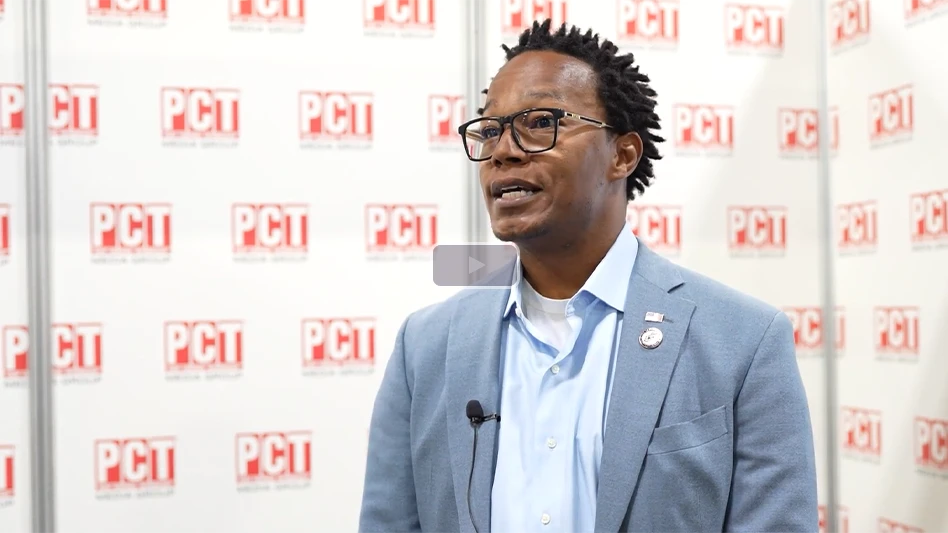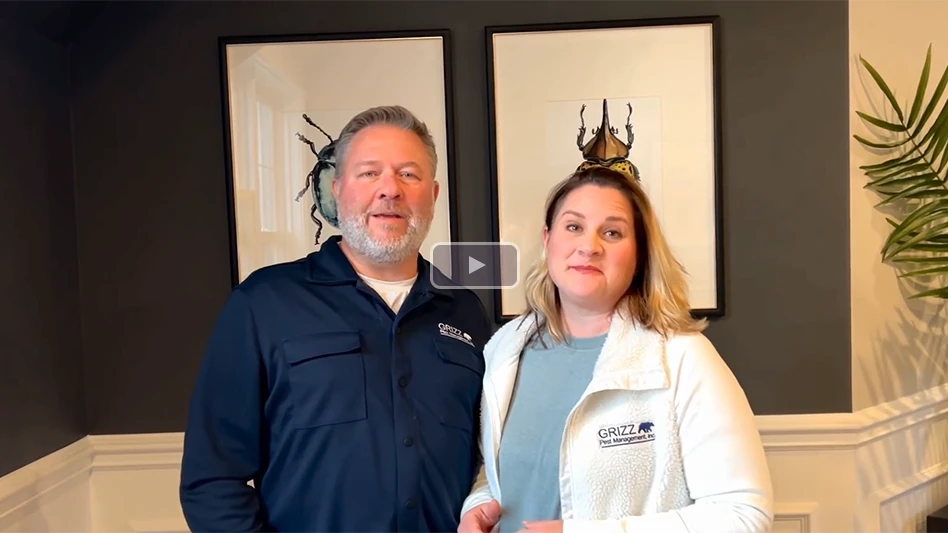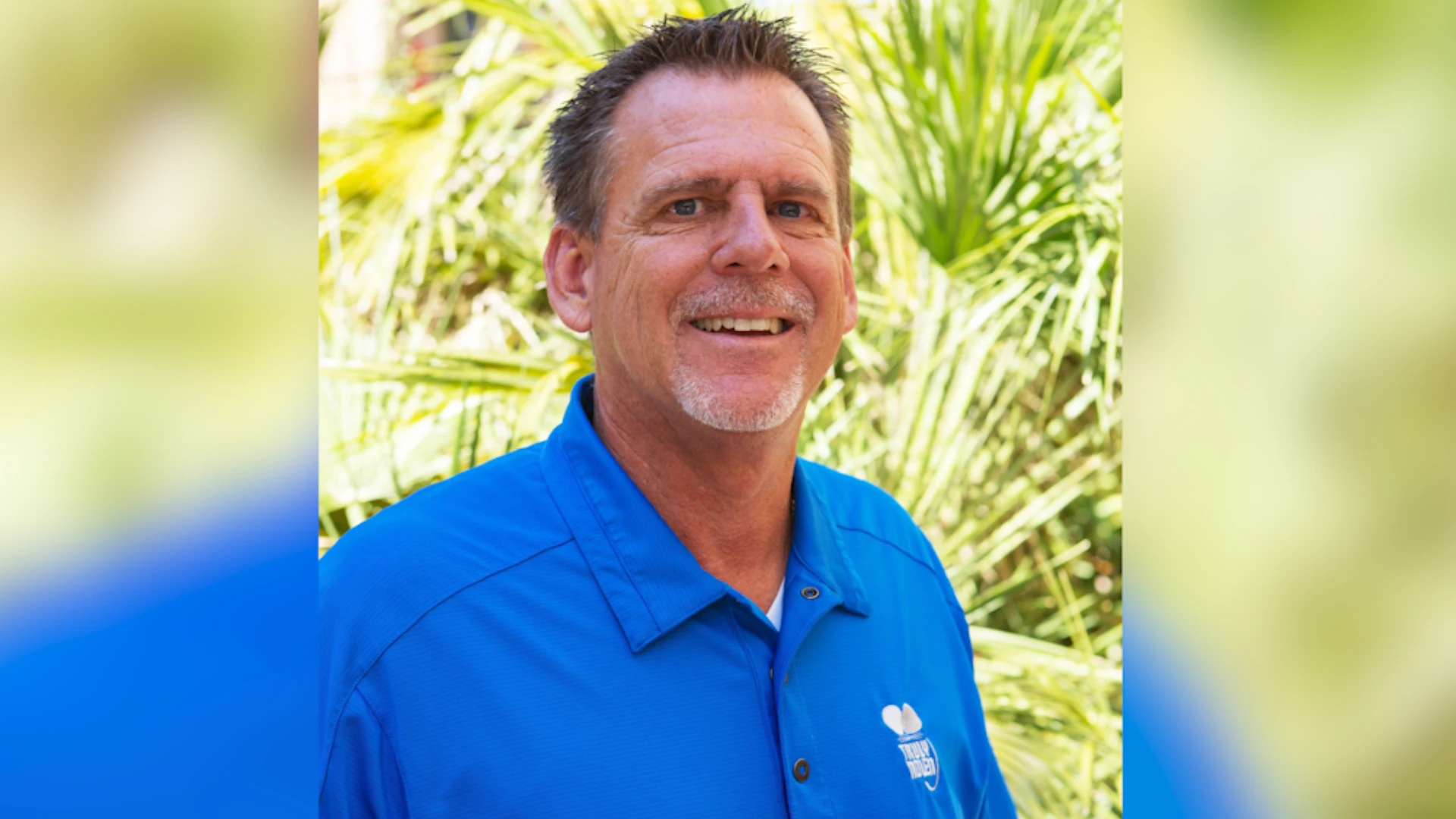Peachtree Pest Control is sharing its significant and ongoing lawsuit abuse story with the pest control industry as well as the nation’s small business sector. The Atlanta-based company, run by the father-son team of Steve and Corey Arnold, recently told their story in a video produced by the U.S. Chamber of Commerce (online at bit.ly/Peachtree-lawsuit). The video focuses on the 14-year legal saga of Peachtree Pest Control, which was sued by a receptionist for a severe health condition, allegedly contracted at an office complex the company had serviced. Court testimony revealed the plaintiff worked nowhere near the treatment area, and a jury ruled in favor of Peachtree. An appeals court remanded the case, forcing a second trial, where a second jury again ruled in favor of the defendant. The plaintiff has threatened, however, to extend the case even further by appealing again. "Everyone deserves their day in court. But when is enough, enough?" asks Steve Arnold, Peachtree’s founder. "It tears me up to this day, sitting here thinking that everything we built over the past 35 years is on the line." Peachtree became involved in the precedent-setting chemical exposure litigation in 1997. The details centered on an alleged one-time exposure to a widely used insecticide in a commercial setting. "The claimant stated that shortly after our application she became very ill, unable to breathe," says Corey Arnold, Peachtree’s president. "She was rushed to the emergency room and after a number of weeks, doctors and tests, she was diagnosed with RADS (Respiratory Airway Dysfunction Syndrome) — a lifelong ailment brought on by any unknown agent causing permanent damage to the lungs and airways," he said. "Because of her diagnosis, she spent the next 10 years being treated for this disorder with strong doses of steroids, creating dependency. Her life expectancy has been cut in half because of the misuse of steroids. Further, she is now wheelchair bound and oxygen dependant. Basically this woman’s life is changed for the worse for the rest of her life." ***** About ILR A video about Peachtree Pest Control’s experiences in the courtroom is now online at www.instituteforlegalreform.com. The video was produced as part of the U.S. Chamber Institute for Legal Reform’s Faces of Lawsuit Abuse campaign. The U.S. Chamber Institute for Legal Reform (ILR) is a national campaign, representing the nation’s business community, with the mission of making America’s legal system simpler, fairer and faster, the group’s website says. Founded by the U.S. Chamber of Commerce in 1998 to address the country’s litigation explosion, ILR is the only national legal reform advocate to approach reform comprehensively by not only working to change the laws, but also changing the legal climate. ILR supports: • federal and state legislative reforms • voter education efforts • public education campaigns • grassroots activities ILR aims to: • neutralize plaintiff trial lawyers’ excessive influence over the legal and political systems • create and maintain public support for legal reform, including building alliances with groups and organizations to advance the legal reform agenda • enact common sense reforms to ensure fairness in liability suits • ensure damage awards are fair and equitable, eliminate frivolous lawsuits, and enforce legal ethics rules Source: U.S. Chamber Institute for Legal Reform ***** Corey Arnold says this was a $10 million+ case. "Her husband, who is a clergyman, wheeled her into the courtroom. She wept around her oxygen mask, and her daughter ran up to her," he adds. "Was this just a show for the jury to influence their decision? We don’t know. "It’s interesting to note that the woman was not the only person in the building when our company treated it. In fact, she was one of many who were there. It’s also interesting to note that she had also sued another company — a major candy company — prior to this lawsuit, claiming she found bugs in the candy bag. The candymaker settled prior to their trial." There are several specific reasons why Peachtree’s story is important to the pest control industry, Corey Arnold says. "First, our application was made according to label guidelines and, because we are a minimum standard state, in compliance with the Georgia Department of Ag Rules and Regs. This case tested, and some may argue, set the boundaries of what is allowable in terms of chemical exposure tort. At what point is the PMP responsible for the idiosyncratic reactions that the one-in-a-million person might have to products being used by many PMPs? "This case is further significant because it was won in 2002, went to appellate court and was overturned for a retrial. In 2009, we won a defense verdict...again. Since then, the prosecution has contacted us and said that for $500,000 the plaintiff will not appeal the case again," says Arnold. "We refused and they’ve just filed a Petition for Writ of Certiorari. That’s a document in which a losing party files with the Supreme Court asking the Supreme Court to review the decision of a lower court." Peachtree’s attorney has written several case studies regarding this scenario and published them in various trade publications. The Arnolds say the pest control industry needs to hear more about this case, the potential pitfalls around chemical exposure tort, as well as the proactive steps being taken to limit such unnecessary lawsuits. "Tort reform is absolutely needed and this story should to be told. We learned some hard lessons from this and I’d like to help our fellow PMPs and other small business people avoid the heartache we’ve felt over this past decade," he said. Peachtree’s video was produced as part of the U.S. Chamber Institute for Legal Reform’s Faces of Lawsuit Abuse campaign. Designed to be presented to Congress and businesses around the country, it showcases real stories of lawsuit abuse against small businesses, communities and individuals. The stories of Peachtree and other companies in other industries demonstrate that lawsuit abuse has real economic, social and emotional effects on real people. ***** Small Businesses and Lawsuits Research reveals that small businesses are concerned about lawsuits, and litigation has had an adverse effect on the operations of many small businesses. In a 2007 Harris poll of business owners/managers who indicated that they were somewhat or very concerned about frivolous or unfair lawsuits, 62% said they make business decisions to avoid lawsuits. These decisions had the following effects: 61% said made their products and services more expensive. 45% said made a product or service unavailable to customers. 23% said the decisions forced them to cut employee benefits. 11% said the decisions forced them to lay off employees. 73% said business suffered because litigation was very time consuming. 64% said business suffered because litigation was very expensive. 61% said they felt more constrained in making business decisions generally. 45% said they changed business practices in ways that do not benefit customers. Source: Tort Liability Costs for Small Business, July 2010 ***** "The Chamber’s video has now been viewed by a number of companies of all types around the country," he said. "Some have already phoned me and commiserated, telling me about their experiences. Talk about an emotional toll. Until you’ve lived it, it’s hard to describe. What we at Peachtree are feeling, and what other companies said they are feeling, is the anxiety of possibly losing our businesses. It’s something akin to the potential death of a child. Everything we’ve all worked for and loved is jeopardized because of lawsuit abuse. "My father will soon relate our experiences to a group of state legislators from all over the U.S. at a meeting in Cincinnati sponsored by the U.S. Chamber of Commerce," Corey Arnold said. "Our hope is that our story will bring light to the increasing need for such reform and influence our elected officials in Washington to take action." The author is a frequent contributor to PCT magazine. He can be reached at jfox@giemedia.com.
More than a third of these business people (34%) had a lawsuit filed against them in the prior 10 years. These suits had the following effects:

Explore the May 2011 Issue
Check out more from this issue and find your next story to read.
Latest from Pest Control Technology
- MGK Announces EPA Registration of Botanical Active Ingredient Veratrine
- Termite Control Sales Strategies
- NPMA Announces ELP Class of 2025
- Termite Control Tools and Equipment for PMPs
- Choe Reviews Drywood Termite Geographical Hotspots, Latest Research Findings
- Mosquito Squad Announces Rebranding to Mosquito Squad Plus
- Pest Control Equipment: If it’s Critical, Back it Up!
- In Memoriam: Marybeth Wonson





